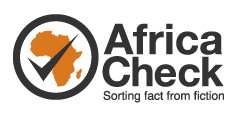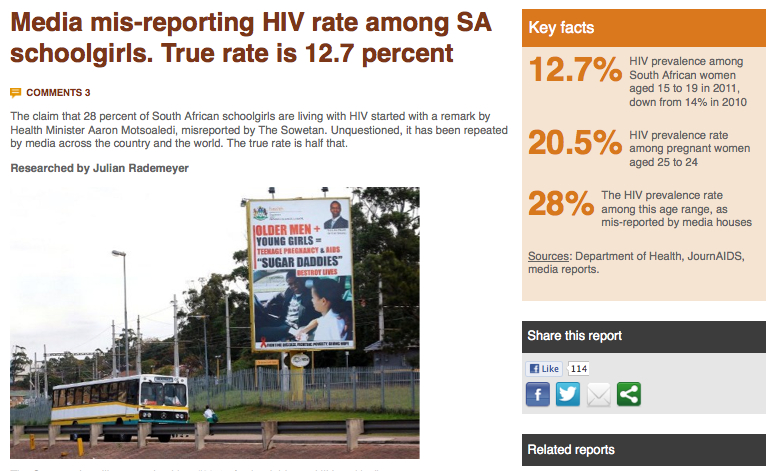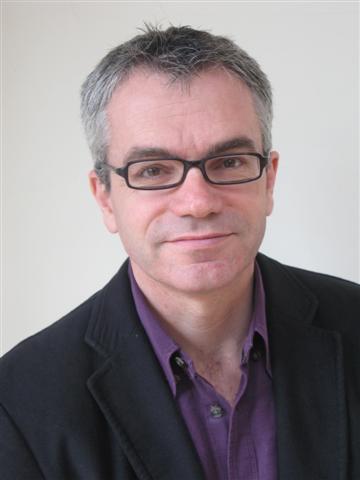Checking the facts in Africa
 The idea of Africa Check is straightforward. Investigate claims made in public; check the facts; and, publish the findings.
The idea of Africa Check is straightforward. Investigate claims made in public; check the facts; and, publish the findings.
Africa Check was launched in 2012, and is a non-profit organisation led by the media development agency AFP Foundation and the Journalism Department of the University of the Witwatersrand in Johannesburg.
The organisation not only examines the public claims of politicians, leaders in civil society, government agencies and NGOs, but also checks the facts journalists use in their stories.
Peter Cunliffe-Jones of the AFP Foundation is the Director of Africa Check and says getting the facts right is the “essence” of journalism. But under the pressure to feed 24 hour news, and working across more topics, journalist may feel they “don’t have the time and the expertise, or even know where to look” to verify information.
Reading an Africa Check report is a little bit like a mini-lesson in the basics of journalism. You also see that this project has the potential to have a high impact on African media and perhaps serve as a model in other countries or regions.
Take this recent example of mis-reporting the HIV rate among South African schoolgirls that appeared in The Sowetan newspaper.
It is an alarming headline that gained a lot of attention. The South African Press Association (SAPA) picked up the story citing The Sowetan, and then the story was reported by media outlets around the world and via social media networks.
By checking quotes with the Health Minister’s staff and using a publicly available source, Africa Check’s investigation found that the real rate of HIV among SA schoolgirls is half of what the media reported: “HIV prevalence among young women aged between 15 and 19 was around 12.7% in 2011”.
Peter Cunliffe-Jones says it took just a few minutes to check the key facts in this story.
To help journalists improve their skills the Africa Check website has some useful tips for fact checking and a list of online references – potentially making it a go-to website for African journalists to start their search for sources of data.
Africa Check’s focus at the moment is South Africa, but Cunliffe-Jones says the organisation will soon broaden its coverage to countries across southern Africa. He says it’s encouraging that South African media outlets are now starting to cite Africa Check’s reports, or have corrected their stories following an Africa Check investigation.
So how does Africa Check fit into media development within Africa?
By having the project based in the journalism department of Wits University, Cunliffe-Jones says Africa Check can carry out fact checking, but also offer teaching and training. Moreover, the project is “fostering a culture of fact checking” which is fundamental to good journalism.
Watch this short video below (from Vimeo user Pokitin) for some more thoughts from Peter Cunliffe-Jones on fact checking in journalism and the Africa Check project.
Peter Cunliffe-Jones from Pokitin on Vimeo.
Author: Guy Degen







Feedback